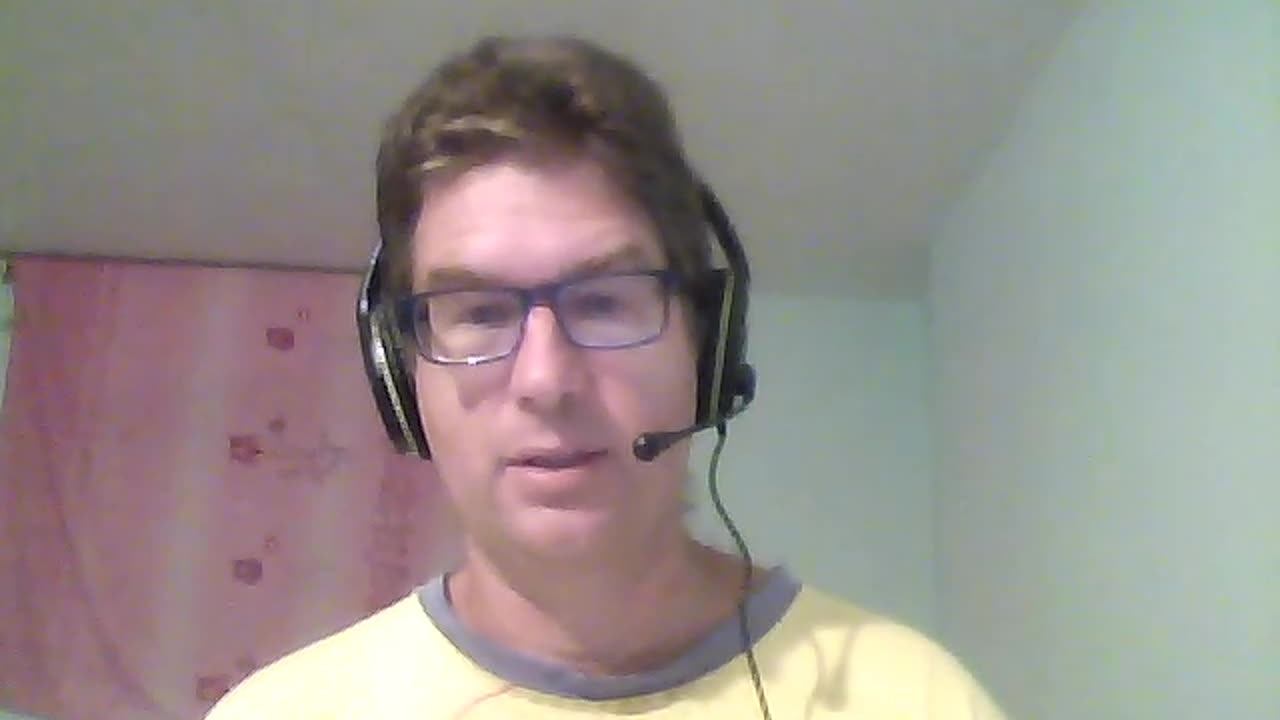Premium Only Content

The Holographic Conditions of SCAD, Psuedo-events
My contention is that we can use a little postmodernism to crash through the hijacked narratives and make sense under holographic conditions. Postmodernism expresses a skepticism for grand narratives---and at least asks the question to what extent, and how much, are truth claims evaluated and accepted on the basis of power and power games. Michel Foucault gave us the concept of ´´governmentality´´, where implicit to all governmental ´´truth claims´´ is an invisible, unspoken covenant where power determines by what criteria declarations and/or claims of ´´fact´´ must be substantiated. How academia synthesizes information depends on valorization where what is deemed important and newsworthy is assigned value, not by any objective criteria, but on the basis of information`s relation to power. Postmodern philosophy, as an invitation, may prove invaluable since it places narratives squarely at the forefront. As Alexander Dugin expressed, ``an invitation to political creativity; a statement of intuition and conjectures; an analysis of new conditions, and an attempt to reconsider the past….It is now safe to institute a political program that was once outlawed by modernity. It no longer appears as foolish and doomed for failure as before, because everything in postmodernity looks foolish and doomed for failure, including its most ´glamorous´ aspects. It is not by chance that the heroes of postmodernity are ´freaks´ and ´monsters´, ´transvestites´ and ´degenerates´. This is the law of style. Against the backdrop of the world’s clowns, nothing and no one could look `too` archaic`, not even the people of Tradition who ignore the imperatives of modern life.´´ Dugin goes onto say that postmodernist philosophy is a way to approach modernism, but needs to be tempered by antiquity, where both postmodernism and the premodern approach modernism. This is where the standard Anglo-American critique of postmodernism of the Jordan Peterson variety falls short in precisely failing to see the uses postmodernism has to offer. For Peterson and others, it seems enough to have refuted postmodernism. The question then of ``where do we go from here?`` by default is a return to modernism, where as Dugin and many ``conservative revolutionaries`` would choose a future, not based on the past, but based on new, and hitherto uncharted, possibilities and tendencies and the return of tradition and theology.
-
 10:54
10:54
NAG Daily
14 hours agoMike on a Bike #5 - Charlie
2.47K6 -
 11:07
11:07
Ken LaCorte: Elephants in Rooms
15 hours ago $0.29 earnedWhy Do Black Athletes Dominate?
3.84K7 -
 LIVE
LIVE
BEK TV
23 hours agoTrent Loos in the Morning - 9/24/2025
169 watching -
 LIVE
LIVE
The Bubba Army
22 hours agoCrying Kimmel Returns | Bubba the Love Sponge® Show | 9/24/2025
2,389 watching -
 46:08
46:08
ZeeeMedia
16 hours agoAutism: Vaccines vs. Tylenol, Parents Suing Open AI Speak Out | Daily Pulse Ep 113
23.6K28 -
 22:54
22:54
DeVory Darkins
1 day ago $14.94 earnedABC suffers fatal mistake brings Kimmel back on air as Trump makes shocking announcement
35.8K159 -
 19:04
19:04
putther
2 days ago $0.94 earnedTrolling a Level 7981 With My CHERNOBOG on GTA Online!
31.2K4 -
 26:17
26:17
Coin Stories with Natalie Brunell
20 hours agoInside Strive’s Bold Bitcoin Acquisition of Semler Scientific
38.2K2 -
 2:26:57
2:26:57
The Robert Scott Bell Show
20 hours agoTrump Autism Announcment, NYC Fluoride Ban, EMF Concerns, Kimmel Returns (Sort of), Plastics & Childhood Disease - The RSB Show 9-23-25
16.9K8 -
 9:33
9:33
Dr Disrespect
5 days agoDoc Goes PSYCHOTIC
140K17